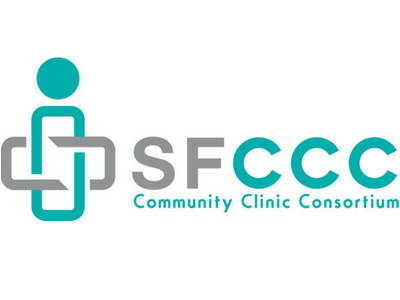NHC SF Member Blog: Reflecting on HIV/AIDS Awareness Month as a Shelter Health Educator
Hi! My name is Anjalie Gowda (she/her) and I was born and raised in Ellicott City, Maryland. I graduated from the University of Maryland, College Park in 2024 with a Bachelor's in Public Health Science, and a drive to make a difference in reproductive health. I am grateful for the opportunity to put public health into practice as the Shelter Health Educator for the San Francisco Department of Public Health Whole Person Integrated Care. Alongside SFDPH's Shelter Health team, I am focused on STI prevention and education in shelter communities.
December marks HIV/AIDS Awareness Month–a time to acknowledge the progress made in fighting the epidemic, as well as the work still ahead. San Francisco has been at the heart of the HIV/AIDS crisis since 1981 when the city saw one of the earliest and most devastating outbreaks. This epidemic initially affected the LGBTQ+ community and later spread more widely, deeply impacting all populations, including those experiencing homelessness. Decades later, San Francisco is now a leading city in the fight against HIV/AIDS, thanks to aggressive efforts in prevention, treatment, and community support. Nonetheless, people experiencing homelessness remain at high risk for HIV due to factors such as limited access to healthcare, substance use, and mental health challenges. Today, programs like PrEP (Pre-Exposure Prophylaxis) and preventative testing are accessible, though many individuals in shelters continue to face barriers preventing them from benefiting fully from these advances. My role as a health educator allows me to connect these individuals with educational resources and testing so they can be in the driver's seat of their health.
I have had the opportunity to help organize pop-up STI testing and prevention workshops in shelters. Our Shelter Health team distributes safe sex supplies and offers free testing to our shelter residents. Working directly with residents, I’ve seen how education can make a difference. For instance, the nurse team and I connected with a patient who was given the antibiotic Doxycycline to treat an STI, but was unaware of how to take it. After taking it on an empty stomach, they felt extremely nauseous and experienced vomiting, all of which could have been avoided with solid patient education. Seeing this, I was inspired to create handouts containing information on specific medications. I hand these fliers to patients when they are prescribed medication or when they come to the clinic with specific questions about a medication's use.
Many residents have different living conditions that make it difficult to prioritize healthcare, so I've learned it is also important not to overwhelm patients with information. I've experimented with sharing educational information in the way that is clearest and most beneficial for the patient, rather than what I think is best. Furthermore, many misconceptions surrounding STIs make it difficult for individuals to seek treatment or cause unnecessary anxiety. Speaking with patients, there needs to be more clarity about how STIs are transmitted that can be addressed by meeting patients where they are and acting as a channel to provide information that patients can use to feel in control of their health.
The community has shown me that while data and programs are crucial, genuine human connection often makes the biggest impact. Being present and listening actively is imperative to offer individualized care. These experiences remind me that building trust is the foundation of effective health education. HIV/AIDS Awareness Month is a reminder of the work still ahead, but it’s also a celebration of the strength within our communities.
About the Author
Anjalie Gowda is one of the NHC San Francisco AmeriCorps Members for the 2024-2025 Service Term. Anjalie serves as the Shelter Health Educator with the San Francisco Department of Public Health’s Whole-Person Integrated Care Team.


